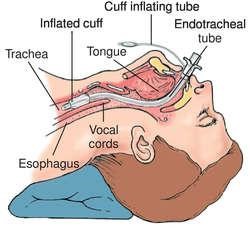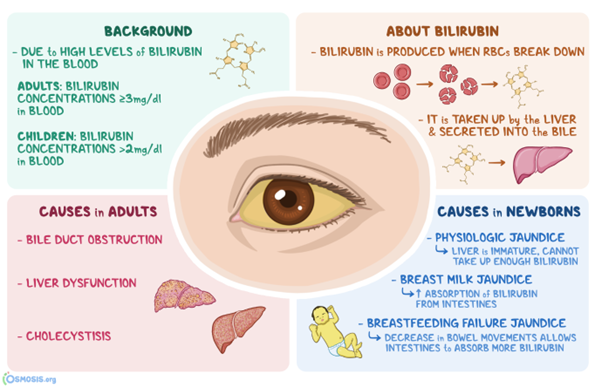A nurse is suctioning the airway of a client who is receiving mechanical ventilation via an endotracheal tube. Which of the following findings should the nurse identify as an indication that the suctioning has been effective?
Thinning of mucous secretions
Decreased peak inspiratory pressure
Presence of a productive cough
Flattening of the artificial airway cuff
The Correct Answer is B
Choice A reason
While thinning of secretions can be a positive sign, it's not always visible. A decrease in peak inspiratory pressure is a more objective indicator of improved airway patency.
Choice B reason.
Peak inspiratory pressure is the maximum pressure required to push air into the lungs. If suctioning is effective, it will remove secretions and reduce airway resistance, leading to a decrease in peak inspiratory pressure.
Choice C reason:
While a productive cough can indicate that secretions are being moved, it doesn't directly measure the effectiveness of suctioning.
Choice D reason:
Flattening of the artificial airway cuff: Flattening of the artificial airway cuff is not a relevant indicator of the effectiveness of suctioning. The cuff of an endotracheal tube is inflated to prevent air leaks around the tube and to maintain proper ventilation. It is not directly related to the effectiveness of suctioning.

Nursing Test Bank
Naxlex Comprehensive Predictor Exams
Related Questions
Correct Answer is D
Explanation
Choice A reason:
Face is incorrect: Facial skin colour can vary for many reasons, but it may not be the best indicator of jaundice in individuals with dark skin.
Choice B reason
Shoulders is incorrect: The shoulders are not typically indicative of jaundice.
Choice C reason:
Palm of the hands is incorrect: While the palm of the hands can sometimes show yellowing in cases of jaundice, it is less reliable than observing the sclera.
Choice D reason:
Sclera is the best location. In individuals with darker skin tones, yellowish discoloration of the skin due to jaundice can be more challenging to detect. However, the sclera of the eyes can still show noticeable yellowing, making it a reliable location for assessing jaundice in individuals with both light and dark skin.

Correct Answer is D
Explanation
A. Clean the mouthpiece with warm water every 2 weeks. This is incorrect because the mouthpiece should be cleaned with warm water at least once a week, or more often if used frequently, to prevent bacterial growth and contamination.
B. Wait 10 seconds between inhalations. This is incorrect because the recommended time interval between inhalations is 1 minute, not 10 seconds, to allow adequate absorption of the medication and prevent overdose or side effects.
C. Take a quick inhalation when pressing the dispenser. This is incorrect because a quick inhalation can cause poor coordination of hand-mouth movement and result in less medication reaching the lungs. The nurse should instruct the child to take a slow, deep inhalation when pressing the dispenser, hold their breath for 10 seconds, and exhale slowly.
D. Take the medication 15 min before playing sports. This is correct because albuterol is a short-acting bronchodilator that can prevent exercise-induced bronchospasm. The nurse should teach the child to take the medication before engaging in physical activity that can trigger asthma symptoms, such as sports, cold weather, or allergens.
Whether you are a student looking to ace your exams or a practicing nurse seeking to enhance your expertise , our nursing education contents will empower you with the confidence and competence to make a difference in the lives of patients and become a respected leader in the healthcare field.
Visit Naxlex, invest in your future and unlock endless possibilities with our unparalleled nursing education contents today
Report Wrong Answer on the Current Question
Do you disagree with the answer? If yes, what is your expected answer? Explain.
Kindly be descriptive with the issue you are facing.
